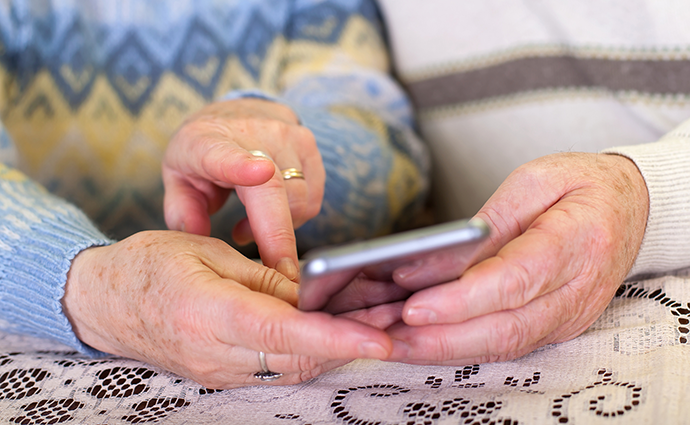Year-Long Study Validates Telehealth Use in Diabetes Prevention Efforts
Supporters of digital Diabetes Prevention Programs say the PREDICTS trial proves that telehealth and mHealth tools can improve clinical outcomes for people at risk of developing the chronic disease.

Source: ThinkStock
- A year-long study conducted by the University of Nebraska and Wake Forest University has found that a telehealth platform can help reduce the risk of diabetes in people with a high likelihood of developing the chronic disease.
Participants in the Preventing Diabetes with Digital Health and Coaching for Translation and Scalability (PREDICTS) trial “achieved a statistically significant and clinically meaningful improvement” in health and wellness, officials said in a press release. The trial centered on a digital Diabetes Prevention Program (DPP) created by San Francisco-based Omada Health.
"The results clearly demonstrate the clinical effectiveness of the Omada program, and compare quite favorably to other studies of digital approaches to diabetes prevention,” Jeffrey Katula, PhD, an associate professor of health and exercise science at Wake Forest and the study’s co-principal investigator, said in the press release. “Our results should certainly inform policy decisions regarding the rapidly changing world of digital preventive health at a time when remote delivery of services is essential."
DPP programs have travelled a rocky road toward acceptance. Developed in the late 1990s, the DPP model was incorporated into a National Diabetes Prevention Program by the Centers for Disease Control and Prevention and supported by the Centers for Medicare & Medicaid Services.
But those programs, which focus on structured interventions and coaching, have struggled to gain an audience – due in large part, telehealth advocates say, to CMS’ refusal to cover programs that use connected health platforms. CMs has argued that it needs more proof that telehealth and mHealth tools can affect positive outcomes.
Just two months ago, a group of Senators introduced a bill that would make digital health part of the Medicare Diabetes Prevention Program.
“It’s no secret that diabetes is a disease that has disproportionately affected minority communities across the country,” Senator Mark Warner (D-VA), a co-sponsor of the bill, said in a press release. “To ensure that all individuals have the tools needed to combat this preventable disease, the Prevent Diabetes Act would help expand access to virtual classes under the existing Medicare Diabetes Prevention Program. This commonsense and cost-saving expansion will ensure that more Americans at-risk of developing diabetes who are living in either rural or medically underserved communities, can participate in this critical program that has been proven to delay the full onset of this preventable disease.”
Supporters are hoping the results from the PREDICTS trial, unveiled during this week’s ObesityWeek Interactive virtual conference, will support that effort.
Based at the University of Nebraska Medical Center in Omaha, the program focused on roughly 600 participants at high risk of developing diabetes. One group was assigned the Omada d-DPP program, which includes weekly sessions, peer support and personalized coaching on a virtual care platform, while the other group attended traditional in-person sessions.
Tallying the results of the two groups after one year, researchers found that that the group using the telehealth platform saw significantly better reductions in Hemoglobin A1c (HbA1c) levels; in addition, some 44 percent of the Omada group achieved a weight loss of at least 5 percent, while only 21 percent of the control group lost that much weight.
Adding connected health access to DPP programs could help the more than 84 million Americans at risk of developing diabetes.
By using a virtual care platform and mHealth devices, providers can expand the range of the program to connect with more people and provide personalized treatment. And health systems, physicians and community-based groups could use these tools to connect with people in their own homes, offering guidance designed to improve health and wellness.
